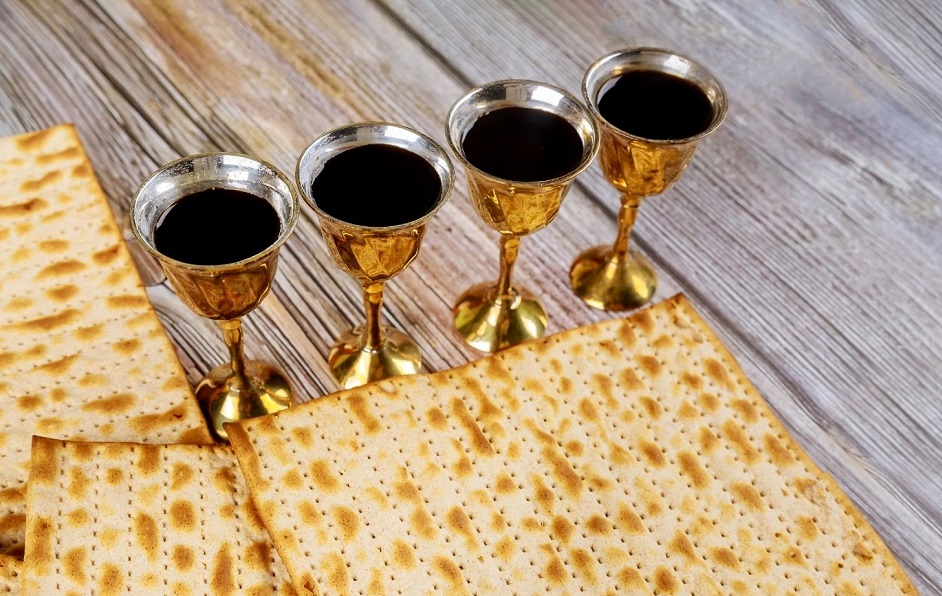A wine that is kosher certified is made in the same way and tastes the same as regular wine, however, it must be produced according to Jewish dietary laws known as ‘kashrut’.
The word ‘Kosher’ itself refers to a food or beverage that conforms to Jewish dietary regulations and is deemed to be ‘fit for consumption.
For a wine to be considered ‘kosher’ it can only be handled, made, and served by Sabbath-observant Jews. As such, they are the only individuals permitted to crush the grapes and taste the wine before bottling it.
The grapes should be taken from vines that are no less than four years old. Upon reaching the winery, these grapes should still be ripe and in good condition ready to be made into the wine.
There is an urban legend that suggests that a kosher wine gets its certification from a specially trained Rabi who has supervised the process, however, this is not the case and can vary depending on the certification body.
In many instances, the individual supervising the process doesn’t need to be a Rabbi but they must ensure that the Jewish Laws are adhered to and respected at all times.
Winemakers must also be cautious when selecting ingredients to make this wine as they must all qualify as kosher too, even the fining agents and the yeast.
Furthermore, the wine should also be free of artificial colors and preservatives and made using equipment that is suitable for making kosher wines.
If the opened bottle of wine is handled by anyone other than the observers of Sabbath, it is no longer identified as kosher.
The Types Of Kosher Wine
Kosher wine can be categorized as one of the following; a regular kosher wine, a kosher wine for Passover, a sacramental wine, or a mevushal wine.
As mentioned above, a regular kosher wine adheres to Jewish dietary laws. A Kosher wine for Passover should be free of particular additives such as legumes and corn syrup.
Also, it should not come into contact with any bread or products that have been made with leavened dough.
Now, the majority of kosher wines are suitable for Passover, those that would normally use corn syrup as a sweetener must have a label that states that it is approved for Passover.
A sacramental wine, also known as a Kiddush wine, has a taste that is very similar to that of sugary water. It doesn’t need to be an overly pricey wine and is used for religious ceremonies and blessings.
Unlike a regular Kosher wine, a Mevushal wine will remain kosher even if it is handled and served by individuals who are not Jewish.
This wine is heated at a high temperature for a couple of seconds in a process known as flash pasteurization. This is done to ensure that it does not lose its spiritual purity even when handled by those that aren’t Jewish.
Where is Kosher wine made?
Due to an increased interest in Kosher wine from consumers, nowadays there is a greater demand for this type of wine.
To keep up with popularity, you will now find that it is available in practically every wine-producing country including Israel, Italy, France, and the USA.
Of course, different countries have different varieties and brands of wine, and because of this, you will find that notable names emerge from certain countries.
In the USA, Kosher wine has a sweeter taste and is made from Concord grape. Also, the most popular variety of Moscato in the USA is Kosher approved, with millions of bottles sold regularly.
How is Kosher wine made?

Kosher wine is made following the same process as regular wine with two noticeable exceptions. It can only be handled by Jewish winemakers and the regulations regarding the additive content are a lot stricter.
Kosher wine must not be made using animal by-products or ingredients that derive from an animal. Because of this, you will find that the majority of kosher wines are suitable for those on a vegan or vegetarian diet.
For clarification, if you are feeling a little cautious about its suitability for your requirements, you can check the details on the label.
The grapes used in Kosher wines should not be treated with an organic fertilizer.
Furthermore, the grapes should not be sourced from the vines until three years have passed. During the 4th year, they can then be used.
How do you know if a wine is kosher?
Now you may be questioning how you can differentiate between a kosher wine and a regular wine. A wine that is kosher certified will display a hechsher on its label.
This shows that a product conforms to rabbinical requirements. If a wine is not marketed with this certification on its packaging, it is not classified as a kosher wine regardless of whether the winemakers have used the correct ingredients.
Does kosher wine taste the same as regular wine?
Typically, kosher wine tastes the same as regular wine and this is because it is made in the same way. Certain countries make this wine using sweeter ingredients than others.
Depending on the grapes that have been used to make this wine, some consumers may also find that it has a slightly bitter taste.
Mevushal kosher wines endure a process of flash pasteurization at a temperature that helps to ease the impact of this process upon the different flavors.
Previously, this wine would be boiled at a higher temperature and this has been known to alter the flavor of the wine quite significantly.
The main difference that sets these wines apart is the Kosher wine is made according to stricter guidelines than regular wine.
Final Thoughts
The kosher wine industry has gained a lot of popularity and it is now made in more countries around the world to keep up with the increased demand. Wine is not kosher if it isn’t made following the correct Jewish laws and it must display the correct certification to prove this. Kosher wine can go bad as any other wine.

